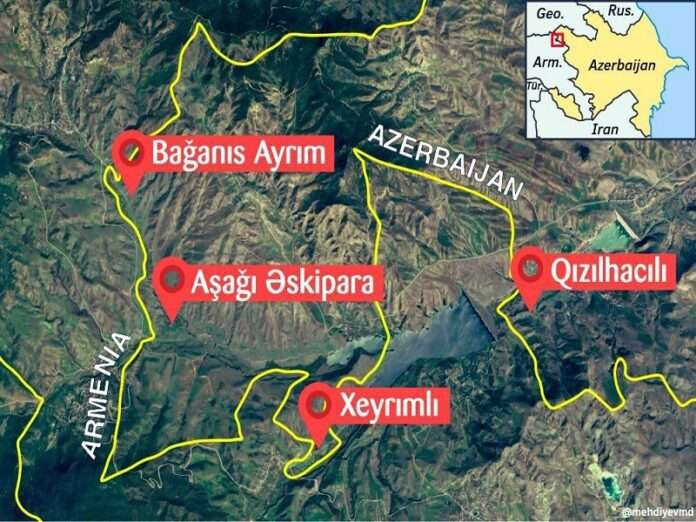Armenia agreed during the eighth round of talks with Azerbaijan to return four occupied villages to its neighbor. This was a pleasant surprise since it suggests that Armenia is finally beginning to realize that it’s not worth perpetuating its illegal control over Azeri land. Up until this impressively pragmatic development, it looked like Armenia was willing to go to war over these illegally occupied villages after being emboldened by promises of Western support, but now it looks like it’s beginning to wise up a bit.
The West wants to turn Armenia into its bastion of influence for dividing-and-ruling the region, which Prime Minister Pashinyan had hitherto voluntarily agreed to help it do in order to simultaneously spite Azerbaijan and Russia, the latter of whom he blames for his country’s defeat in the Karabakh Conflict. This short-sighted policy risked driving Armenia deeper into ruin than it already is, plus the Western military supply chains upon which it would depend in the event of another war are very unreliable.
It was likely due to a long-overdue sober assessment of these high-level strategic risks that Pashinyan finally relented and decided to return those four occupied villages to Azerbaijan after realizing that it’s not worth the foreseeably disastrous consequences of provoking another conflict over them. This doesn’t mean that he no longer wants Armenia to become the West’s bastion of influence in the region, but just that he’s apparently getting cold feet after moving so fast on this since last September.
If bilateral talks continue and the border is delimited in full, then no plausible pretext would exist for the West to exploit in its quest to divide-and-rule the region via Armenia. That landlocked country could still obstruct regional integration projects to the detriment of its own economy just to please its foreign masters, but another war over territorial claims could probably be ruled out. Nevertheless, Western military infrastructure and troops might still spy on the region, which Russia warned about last month.
In the scenario that Armenian-Azeri tensions abate due to them completing the border delimitation process but the West still builds Armenia up as its regional bastion, then that country’s future in the CSTO would remain uncertain. Russian Foreign Minister Lavrov said on Friday that Russia still considers Armenia to be an ally and that the CSTO could protect its borders once they’re officially defined, but Western NGOs and the hyper-nationalist Armenian diaspora have already toxified social ties.
They’ve brainwashed many folks into blaming Russia for Armenia’s defeat in the Karabakh Conflict even though Moscow had no obligation to militarily defend their country’s three-decade-long occupation of universally recognized Azeri land that even Yerevan itself acknowledged was Baku’s. Moreover, they’ve also misled them into believing that their economy could survive without access to Russia’s, which isn’t true either. Another fake news narrative is that Russia let Azerbaijan “ethnically cleanse” Karabakh.
These perceptions coupled with the overarching one alleging that Armenia was previously forced into vassalage to Russia combined to turn many people against their country’s traditional partner, thus explaining why there hasn’t been much pushback against Pashinyan’s plans to pivot towards the West. At the same time, however, this latest impressively pragmatic development whereby Armenia returned four occupied villages to Azerbaijan hints that he might eventually try to repair ties with Russia too.
To be clear, he’s already done plenty of damage to bilateral relations through his unilateral moves and the provocative statements of ruling officials, so much so that he inadvertently created the pretext for Western NGOs and the hyper-nationalist diaspora to orchestrate a Color Revolution if he reverses course. Those two, which work hand-in-hand with one another under the guidance of the American and French intelligence services, could claim that he’s “turning into a Russian puppet” in order to rile people up.
Just like the West has sought to destabilize Georgia on this false pretext, most recently recommencing last spring’s failed attempt just a few days ago, so too could something similar happen in Armenia if Pashinyan attempts to rebalance relations with Russia and the West instead of pivot towards the latter. It’s too early to predict with a high degree of confidence whether that would succeed, but there shouldn’t be any doubt that the US will try to preserve its newfound influence there by hook or by crook.








